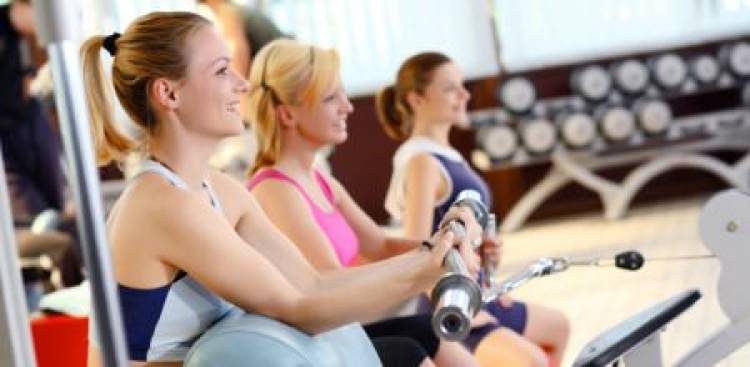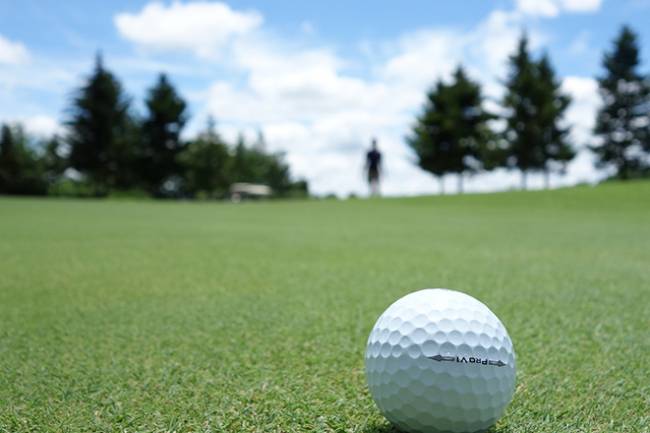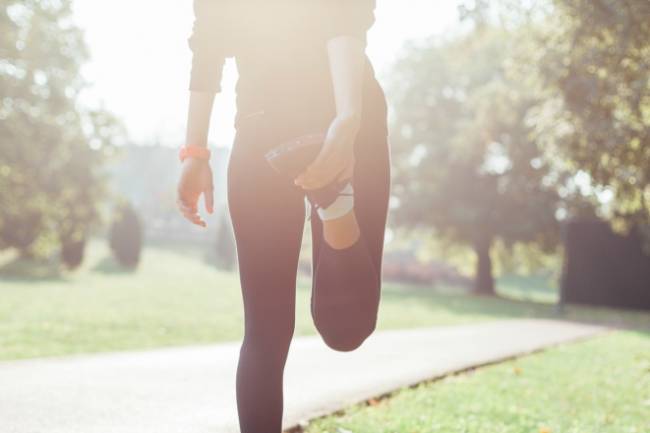The Social Benefits of Exercise

We all know the benefits of exercise – better health, reduced risk of serious diseases, lower blood pressure and a strong, toned body. But health isn't only about being physically strong and healthy, but also about your mental health.
What’s often not talked about are the social aspects of exercise: what meeting and interacting with new people on a regular basis does for you. This, for some, can be as important as the physical aspects – meeting and catching up with friends and learning new skills together. But what, precisely, are the benefits? Read on to find out.
Motivation
One of the most obvious benefits is having others pushing you to do your best. Some exercise can be a lonely experience, leaving you open to the voice in your head that might tell you to stop and give up. On the flip side, all it takes is a friend to say “you’ve got this” to keep you going.
This can be particularly important to those who may struggle with exercise, whether it’s to do with physical conditions or simply not feeling completely comfortable being at a gym or sports centre. One such group who may struggle with exercise is older adults, where it still plays an important part in health. One study looked at a group with an average age of around 85; they found that exercising as a group strengthens “self-efficacy and outcome expectations”, emphasising that regimes for older adults should indeed include a social element to them.
Discipline and Accountability
This point sounds a little less cheery than the last one, but it’s not as gloomy as it sounds! This is less of a drill instructor barking orders at you, and more a friendly face pushing you to stick to your regime and wanting you to reach your goals when you might otherwise stop.
It’s common knowledge that sticking to an exercise regime can be tough: a 2012 US survey found that 80% of January sign-ups to gyms quit by the second week in February. Arranging to exercise alongside a friend means you’re keeping each other in check, with the social obligation being another reason to leave the house and get active. Nobody wants to lie to their friends about being lazy, or leave them high and dry when they’re trying to do their best, too. Naturally, this effect is multiplied if you play a team sport.
This hasn’t gone unnoticed by gyms, either, which are quick to offer group classes and sessions for all kinds of activities, from yoga to aerobics. Even with strangers, the group mentality of feeling like you have to attend is strong enough to keep you going, when you know you should but your body might say otherwise.
And that’s the core of accountability – giving you a sometimes much-needed push when you’re feeling weak. One missed day can often spiral out of control, without a team, group or friend to help get you moving. Be careful, though – they might drag you to the gym no matter what you say!
Friendship and Community
Joining a new team sport or group session is an excellent way of meeting new people, or grow your current circle of friends. You’re all feeling the same burn, the same exhaustion and, hopefully, the same endorphin rush afterwards – the fertile common ground is all there to make meaningful relationships.
This can be especially important to those whose social circle is small or has shrunk over the years. Loneliness is a very real condition, with physical symptoms including increased stress, cardiovascular issues, onset of Alzheimer’s disease and a proclivity to substance abuse. While these sound serious, the cure is simple – find an activity you enjoy and share it with other like-minded people.
It doesn’t necessarily have to be a team sport, either, with groups for just about every activity existing. Searching on the internet (especially social media) will help you locate these groups and get a better idea of what they do – even begin chatting to them before attending. Take full advantage of the resources you have and reach out to new people!
Team Building and Skills
Working with others is a key skill in many parts of our lives, but it can be something that people struggle or need more practice with. Naturally, team sports can build those skills in a fun, low pressure environment.
A 1995 study into team building considered some of the key principles to be “a shared vision and unity of purpose, collaborative and synergistic teamwork… an identity as a team, a positive team culture and cohesive group atmosphere.” These fit perfectly into sports teams and participation, especially being a member for a long period of time; building your place within the team, your pride in the team itself and working hard to see others succeed.
The idea of wanting to be strong for your team will always push you to be stronger, feeding back into the physicality of exercise. Before you know it, you’re putting in twice the effort to not only getting fitter, but also into being conscientious about others on the team – both their wellbeing and their skills.
Dealing with Negative Emotions
There’s nothing new about taking out your frustration during exercise sessions, but this has a knock-on effect to your social life. When exercising you’re going to be hit with a range of negativity – that’s a side effect of pushing yourself and wanting to go further than you currently can. Exercise can give you a healthy space to experience these emotions – stress, anger and frustration, to name some – and learn not only your body’s reaction to them, but how to deal with them.
Learning to deal with these emotions (or simply exercising them out of your system altogether) is going to have a big effect on your social skills. You may be less likely to dwell on certain feelings, to catch yourself sinking into moods with enough time to correct yourself. Let your exercise sessions also be sessions of self-reflection too; learn more about what makes you tick and carry that knowledge forwards with you.
Sport Suggestions
Knowing the social advantages of exercising is one thing, but what about which sports to join? There’s so many to choose from, with each having unique skills being tested as well as unique socialising opportunities. Here we present some ideas for your next new sporting hobby:
Group Classes at the Gym
Trying out classes like aerobics, spinning, boxercise or Pilates at the gym can introduce you to new people who have similar interests as you do.
Classes usually have a consistent schedule and the same group of people often attend. Exercise can become a little repetitive, but having people who expect you to show up can provide the motivation you need to remain successful. Plus, a regular workout regime means you’ll be more easily see any improvements in your stamina and performance.
Dance Classes
Much like a gym class, dance classes introduce you to new likeminded people. Dancing with a group also leads to less stress and stronger social bonds, which are key factors in both mental and physical health. Although it’s not typically seen as exercise, dancing – whether it’s ballroom, tap, salsa or one of the many other kinds – can be physically taxing whilst also being fun and creative.
Rock Climbing
Climbing regularly at an indoor centre opens up a new social scene and creates a sense of belonging in a community. Since rock climbing safely demands a partnership between a climber and a belayer (someone responsible for letting out slack rope, focusing on the climber’s overall safety), it's an inherently social form of exercise, testing your communication skills. There may also be opportunities to travel with clubs to rock faces around the country, going to areas of natural beauty to climb and having ascents be rewarded with amazing views.
Hiking
While some may take to hiking as a solitary excursion, it can also be made into a social exercise by joining a hiking group or organising a group camping trip. Campsites also offer opportunities to meet new people. Reflecting on the beauty of nature or the accomplishment of climbing a mountain can also foster social bonds through a shared experience.
Running
Running can be both an individual or group exercise. If motivation and isolation are keeping you from running, join a club which will encourage you to run regularly while also having fun. They offer both enjoyment and an opportunity to get advice from other runners, which increases your chances of sticking with running while avoiding injury.
Social network sites like Just Join In offer you the chance of signing up for events in your area like Triathlons, Colour Runs or 10Ks to exercise and have fun with people in your local area.
Martial arts
Training in a martial art has some distinctions amongst other similar group training sessions. First of all, there’s a wide variety of variations to choose from: forms like Judo, Jiu Jitsu, Kyokushin and Aikido, to name a few. Also, these skills can be used in self-defence, in case of an emergency. These also hold strong cultural ties, with being deep-seated in their countries of origins.
Yoga Classes
Finally, group Yoga sessions can be an excellent way of not only learning the practice but also meeting other people. This is ideal if you’re looking for exercise that isn’t too strenuous, or if you’re looking for a way to distress. There’s also the possibility of inviting other people back to your home to do Yoga, after learning enough in a group session, alongside closer friends.
Conclusion
They say that exercise is good for the mind, and these are just some of the ways that this truth shines through. Whether you’re looking for more motivation or to make new friends, there is most definitely a social side to sports and exercise that can have an impact on you. Humans are naturally social creatures, so if you have difficulty opening up to new people just be patient and brave – soon you’ll have a whole new gang of people running beside you.
Sources:
https://onlinelibrary.wiley.com/doi/full/10.1111/sms.12275
https://link.springer.com/article/10.1007/BF00844893
https://www.mdpi.com/1660-4601/7/3/784
https://psycnet.apa.org/record/1997-04763-001
https://journals.sagepub.com/doi/abs/10.1177/105477380201100105
https://www.verywellmind.com/loneliness-causes-effects-and-treatments-2795749
https://www.tandfonline.com/doi/abs/10.1080/10413209708415385

 Nicole
Nicole 

























